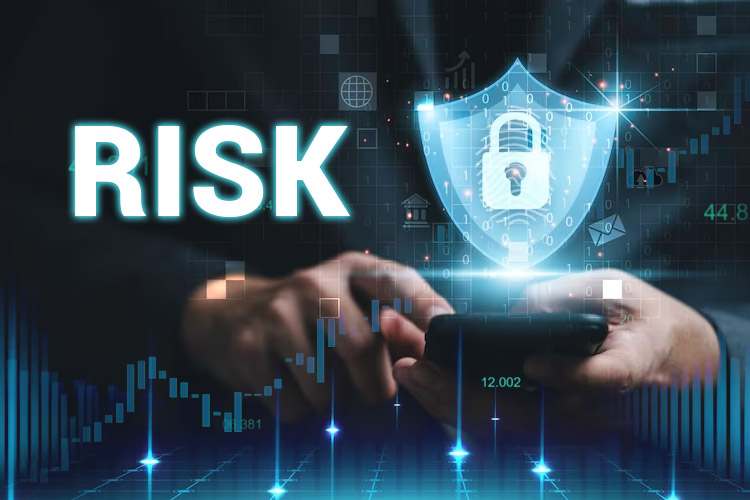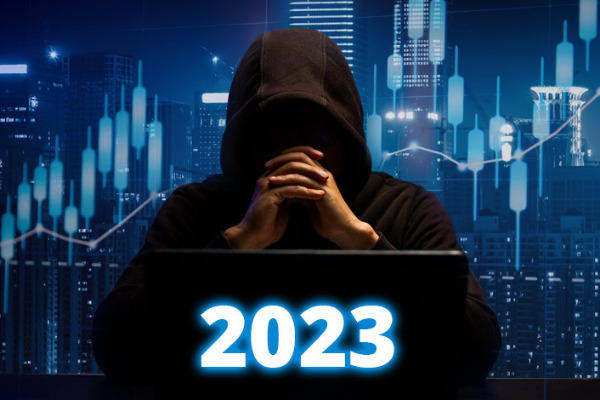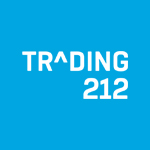Despite their roles in simplifying retail trading and bringing it to all kinds of traders, forex brokers are highly vulnerable to cyber-attacks. What are the threats?
The proliferation of online trading has not only created many new opportunities for retail forex brokers but also brought new risks, particularly cybersecurity. Forex brokers must be aware of various cybersecurity risks in the digital age and take extraordinary measures to mitigate them.
In this article, we will review the most prevalent cybersecurity threats faced by retail forex brokers and the measures that must be implemented to protect traders.

What Are the Threats Faced by Forex Brokers?
The digital age has brought many innovations to the world of forex trading. However, several risks threaten forex brokers' cybersecurity, including:
1. Virus and Malware Attacks
Malware and virus attacks are two of the most common cybersecurity threats forex brokers face. These attacks can come in the form of email phishing, trojan horses, spyware, etc. Once the broker's system is down, hackers will access sensitive information such as client login and trading data, which can lead to significant financial losses.
See Also:
2. Data Breaches and Hacking
Hacking and breaches on the broker's system can leak sensitive data such as client login and financial information. This can result in financial losses and impact the broker's reputation. To address this, brokers must invest in solid firewalls, encryption technologies, and security updates.
3. Insider Threats
Intentional staff misuse of their access to steal sensitive information can be a severe threat from the inside. In this case, brokers must strictly perform background checks, activity monitoring, and training programs to educate staff about cybersecurity risks.
4. Social Engineering
Another type of cybersecurity risk is social engineering. Phishing, or other forms of online crime, involves staff fraudulently disclosing sensitive information such as login credentials or financial information.
5. Human Error
This threat is usually related to weak passwords, losing laptops or mobile devices containing sensitive information, or failing to follow established security protocols. Such errors typically refer to human negligence.
To address these vulnerabilities, brokers can implement strict security protocols, such as mandatory password changes and the remote deletion of lost or stolen devices.
The increasing online trading activity has created cybersecurity risks for forex brokers. In this case, forex brokers must be aware of various cybersecurity threats and take the appropriate measures to address them. Therefore, some security measures such as data encryption, firewalls, and two-factor authentication can be prioritized when choosing a broker. At least, brokers with such security measures are more reliable in handling the security of their client's data and information.
FAQs on Forex Broker Cybersecurity
- What is Cybersecurity?
Cybersecurity protects systems, networks, and programs from digital attacks. These attacks usually aim to access, alter, or destroy sensitive information, extort user money, etc. It is essential to modern society because digital technology is used in various sectors. - Why is Cybersecurity Important?
Cybersecurity is critical because it can protect sensitive information and digital assets from theft by irresponsible individuals (hackers). In this case, cyber attacks can cause significant financial losses, damage the broker's reputation, and even lead to death in extreme cases. - What Risks Do Forex Brokers Face?
Forex brokers face many risks in terms of cyber security. The most important thing is for brokers to look at cyber security protocols and secure potential access points often exploited by hackers. To minimize security gaps, forex brokers can be vigilant about several types of attacks commonly used by hackers, such as:- Phishing attacks targeting users to steal login details
- Trojan viruses
- Deleting, modifying, or damaging system security
- Interfering with money transfer flows, and so on.
- What Types of Cyber Attacks are Most Common?
In some cases, many types of hacking attacks exist. However, some of the most common ones are viruses and malware, phishing, ransomware, social engineering, and data breaches. - How Can You Avoid Cyber Attacks?
Traders can protect themselves from cyber attacks by using strong passwords, avoiding suspicious links or email attachments, regularly updating software and security systems, and being cautious when providing personal information on various online platforms. - What Can Brokers Do to Avoid Cyber Attacks?
Brokers can protect themselves from cyber attacks by implementing robust security measures such as firewalls, encryption technology, and regular software updates. Additionally, brokers must educate their staff about cybersecurity risks and practices and perform routine security audits to detect and address vulnerabilities.
Apart from cybersecurity risks, there are other threats that must be anticipated in the brokerage industry. The prime examples could be discovered in Fraud Trends that Brokers Should Watch for in 2023.

 Dedicated FREE FOREX VPS
Dedicated FREE FOREX VPS Free FOREX Virtual Private Server
Free FOREX Virtual Private Server MT4 Demo Contest, Get $500
MT4 Demo Contest, Get $500 Sign Up for an Account, Claim 60% Deposit Bonus
Sign Up for an Account, Claim 60% Deposit Bonus Free MT4/MT5 VPS 2024
Free MT4/MT5 VPS 2024 Send E-mail and Get Free Merchandise
Send E-mail and Get Free Merchandise $1K Refer a Friend Bonus for Pepperstone Pro clients
$1K Refer a Friend Bonus for Pepperstone Pro clients Maximize Your Earnings with 100% Deposit bonus
Maximize Your Earnings with 100% Deposit bonus Trade to Win, $5,000 Monthly Demo Contest
Trade to Win, $5,000 Monthly Demo Contest Claim 30% + 15% Deposit Bonus from LiteFinance
Claim 30% + 15% Deposit Bonus from LiteFinance






























